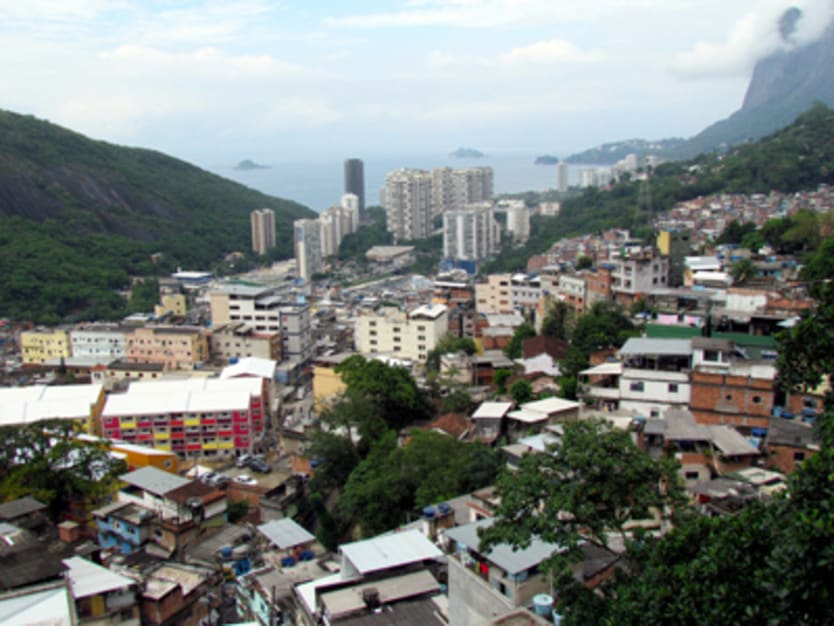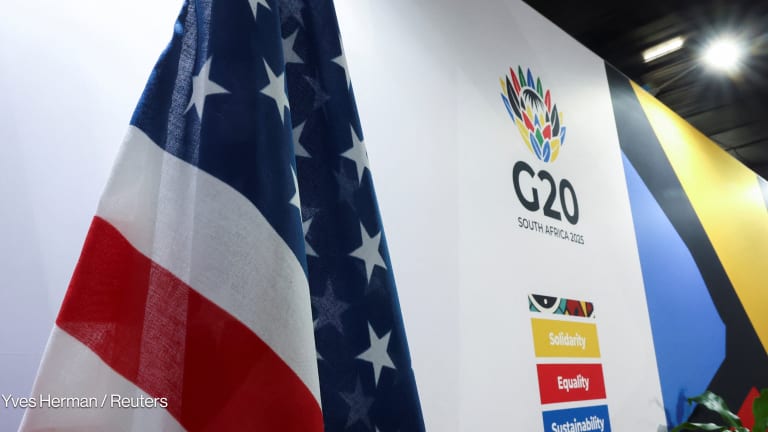
EDITOR’S NOTE: Latin America is considered one of the most unequal regions in the world, but over the last decade inequality has declined in 14 countries, which contrasts with rising inequality in the United States, writes Shannon K. O’Neil, senior fellow for Latin American Studies at the Council on Foreign Relations.
Most everyone agrees that inequality matters. Studies by the World Bank, the IMF, and by academics (such as Richard Wilkinson of the University of Nottingham) demonstrate how harmful inequality can be, affecting a whole host of factors, ranging from economic growth rates to teenage pregnancy rates and crime.
Given the stakes, recent trends in Latin America have been quite positive. Using the Gini index, the most common measure of inequality (where zero represents a perfectly equal society, and one is perfectly unequal), Latin America has been one of the most unequal regions in the world, with the worst discrepancies found in Brazil, Honduras, Ecuador, Colombia, and Bolivia. But over the last decade the Gini declined in fourteen Latin American countries, led by Argentina, Brazil, Ecuador, and Panama.
One reason is economic stability. The booms and busts of the 1980s and 1990s, which wiped out the savings of so many, have now dissipated. Another important factor has been the global demand for the region’s commodities (which range broadly from energy to foodstuffs to minerals), bringing an influx of dollars and spending. Government-run social programs too have mattered, in particular conditional cash transfer programs such as Mexico’s Oportunidades and Brazil’s Bolsa Familia that have helped improve the living situations of millions. Taken together, income for Latin America’s lower and middle classes rose much more quickly than that of the region’s economic elites, reducing inequality.
These positive trends contrast to what has been happening in the United States. Measured by the OECD, America’s Gini coefficient rose by over .04 points during the last twenty years — placing it above OECD members such as Italy and Japan, and on a more comparable level with Turkey. This growing income inequality stems not from the middle and lower classes getting poorer in absolute terms, but rather from the wealthiest 1 percent pulling away from the pack — their annual income increased 275 percent from 1979 to 2007 compared to 37 percent for those in the middle.
An interesting series by the Global Post illuminates these changes, matching up U.S. cities with their equals (in terms of inequality) around the world. For example, Ithaca, NY is on par with Peru (.46), Milwaukee, WI with Uruguay (.45), and Naples, FL with Chile (.52) (you can see more of the comparisons here). A different back of the envelope inequality measurement divides the annual income of a country’s wealthiest 20 percent of the population by the bottom 20 percent. Calculated by Adam Isacson, the United States is now more unequal than ten Latin American countries including Mexico, Venezuela, and Nicaragua.
The question now is how to take on these widening gaps, given the social and aggregate economic costs. Here there is something to learn from America’s hemispheric neighbors. Economic growth alone won’t fix the problem; targeted social programs and safety nets matter. Perhaps too there is something to learn from their politics — with many nations finding their way past years of democratic legislative gridlock to create more socially inclusive policies.
Edited for style and republished with permission from the Council on Foreign Relations. Read the original article.








